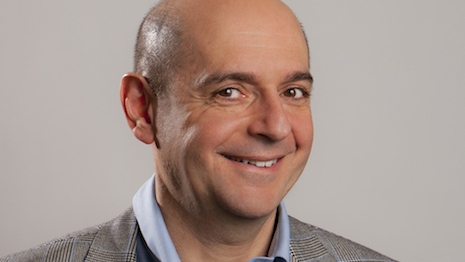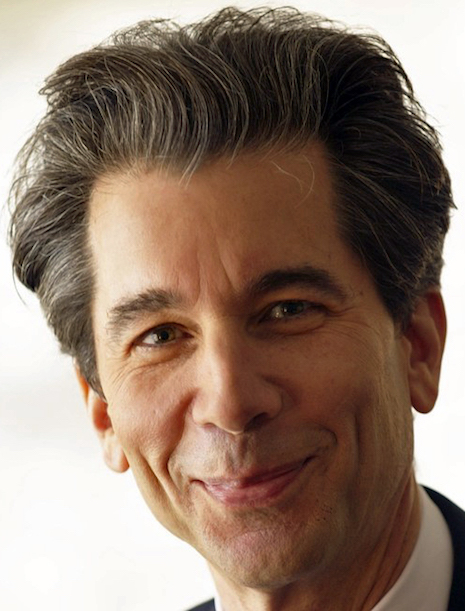- About
- Subscribe Now
- New York,
November 19, 2018

 Spinning in circles? Image credit: Deloitte
Spinning in circles? Image credit: Deloitte
By Benjamin Finzi, Vincent Firth and Mark Lipton
Constant disruption has become a fact of life for nearly all industry segments, and with ceaseless shifts in economy and technology, the luxury sector is no exception.
What began as luxury’s decades-long defensive stance against ecommerce is quickly being eroded by startups that are producing quality products and selling them exclusively online.
Brand new model
Non-legacy luxury companies – real companies, selling real products, to real people – have come out of nowhere, taking market share, appealing to a younger customer and radically changing the luxury game.
Consider the shift in stance of several practically untouchable luxury brands that suggested that their images, service, and products were so sophisticated that the shopping experience had to remain in the store.
Since these sweeping statements were made, they have been chastened by the reality of decreased revenues and the eating away of their market share by new upstarts who have had outsized success selling luxury products online.
But the disruption in luxury does not start with “NoBrand” companies throwing down the gauntlet at luxury brands. Nor does it end with ecommerce.
Not only new platforms, but different acquisition models and tech- and values-driven approaches to new consumer demographics have forced the hand of incumbent luxury companies in adapting to remain relevant and on top.
What is needed to handle all of this change to become “undisruptable”?
 Benjamin Finzi is managing director and co-leader of Deloitte’s CEO Program
Benjamin Finzi is managing director and co-leader of Deloitte’s CEO Program
We have been studying the attributes that top CEOs aspire to in successfully navigating these disruptive times, and based on what they have told us, have found several common themes that can enable CEOs, regardless of industry, to operate more effectively in the midst of a fluid and unpredictable environment.
These attributes collectively become not so much a business strategy as a new model for leadership.
Renting – not buying – that aspirational experience
Despite the changing circumstances, the good news for luxury is that consumers of all ages are still very interested in having access to beautifully crafted, top-quality goods.
But younger consumers, unable to afford to buy luxury items outright, have pointed the way to the luxury rental disruption.
By now, most people have heard of the concept of renting couture, jewelry, exotic cars and short-term rental apartments.
Luxury is no longer only for the rich, though it has been and remains an aspirational sector.
Perhaps this is good news for some purveyors of luxury, because the market is suddenly so much broader.
But in this paradox lies another source of disruption.
If a key underpinning of new consumer behavior is more emphasis on buying experiences than material goods, where does this leave luxury – which has forged its success on fine materials, fine craftsmanship, in a word, splendid “things”?
Here is where the leadership attribute of embracing ambidexterity comes in.
 Vincent Firth is managing director with Monitor Deloitte and Deloitte Consulting LLP, and co-leader of Deloitte’s CEO Program
Vincent Firth is managing director with Monitor Deloitte and Deloitte Consulting LLP, and co-leader of Deloitte’s CEO Program
We will talk more about it in our next article, but briefly, it means simultaneously focusing on what has worked up until now and on the riskier future.
Renting rather than buying haute couture, the private landing strip, the crown jewels, what have you, thus symbolizes a Janus-like challenge, forcing luxury CEOs to look both ways at once.
Food for thought
Aside from travel and fine dining, another facet of this new breed of aspirational shopping is connoisseurship – younger consumers are showing signs of wanting to learn about how that fine object is made, or what is the provenance of the materials used.
Granted, they may not want to have the same experience as, for instance, an older couple of luxury shoppers strolling into a luxury department store on Fifth Avenue – one partner often retreating to a seat in the corner.
Millennials are more likely to spend their discretionary dollars on climbing gym memberships, gear and outdoor experiences.
Hence, companies are arranging camping and climbing tours in beautiful natural spots, as a way to show younger consumers how to use their products and do it well.
Undisruptable leaders will need to become the ultimate end-user ethnographers – mapping to the very specific experiential preferences of their customers.
From there, they can follow through by offering the journey from well-crafted product to its use in an aspirational lifestyle.
 Mark Lipton is graduate professor of management at The New School in New York, author and an eminence and content strategy contributor for Deloitte’s CEO Program
Mark Lipton is graduate professor of management at The New School in New York, author and an eminence and content strategy contributor for Deloitte’s CEO Program
THE WORLD IS changing, and so far luxury has been somewhat reluctant to change with it.
But by taking some cues from the latest thinking in management, luxury companies too can begin to shift the tide of disruption to a more ambidextrous, undisruptable stance without losing the excellence and rarified craftsmanship of its offerings.
Indeed, by adopting the right attributes and making some key shifts in internal culture – notwithstanding these new companies’ seeming success – leaders of legacy luxury firms may stand a better chance of navigating the disruptive forces that are challenging their businesses.
Next time we will delve more deeply into these attributes of CEO undisruptability – a winning response to the market’s turbulence.
Tomorrow: Being undisruptable means connecting. But how?
Benjamin Finzi is New York-based managing director and co-leads Deloitte’s CEO Program. Reach him at bfinzi@deloitte.com.
Vincent Firth is Philadelphia-based managing director with Monitor Deloitte and Deloitte Consulting LLP, and co-leads Deloitte’s CEO Program. Reach him at vfirth@deloitte.com.
Mark Lipton is New York-based graduate professor of management at The New School in New York, author and an eminence and content strategy contributor for Deloitte’s CEO Program. Reach him at mark@marklipton.com.
Additional support from Jean-Emmanuel Biondi, Atlanta-based principal with Deloitte Consulting LLP and the fashion lead for Deloitte’s retail and consumer products practice. Reach him at jebiondi@deloitte.com.
Share your thoughts. Click here